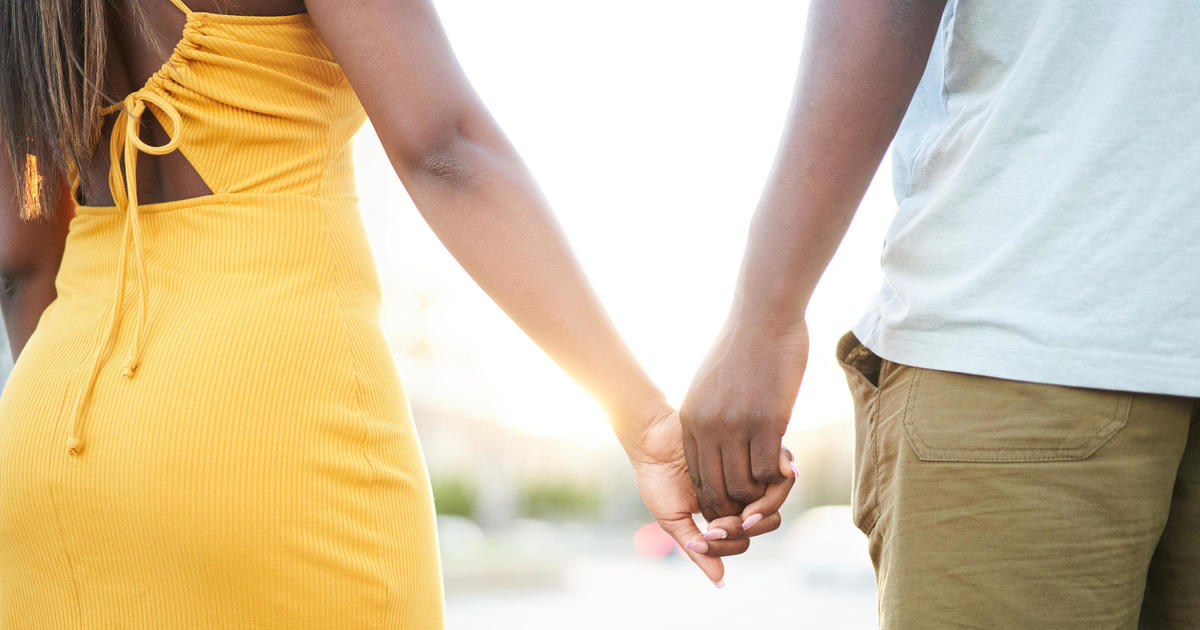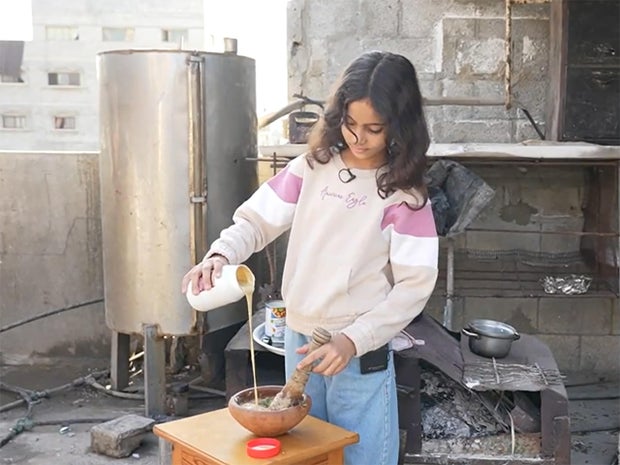CBS News
“Dry dating” this month? Sober dating tips for Dry January and beyond, from a dating coach

Whether you’re taking a break from alcohol for Dry January or reassessing your relationship with alcohol in general, dating without “liquid courage” can feel daunting — but it doesn’t have to be.
“Dry dating” can actually have a lot of positives, says Connell Barrett, a dating coach based in New York City and author of “Dating Sucks But You Don’t.”
“I’m a big fan of dry dating because it allows you to generate a potential connection with that other person not based on the buzz you’re feeling from the alcohol, but rather from the genuine clicking and connecting you’re doing as people,” he says.
In today’s more sober-curious world, dry dating is also more common than you may think.
Barrett, who’s nearly a year sober himself, says he’s worked with a lot of clients who are in recovery or just don’t drink.
“What I’ve found is once you push away alcohol as a crutch in dating, it’s a way to build genuine, real confidence in yourself,” he says, adding that the idea of “liquid courage” is a big myth.
“Alcohol doesn’t give you courage, alcohol numbs fear — and that makes you feel more courageous because … it makes it easier to, quote-unquote, be yourself (or) to say something more expressive,” he says. “However, once the alcohol is gone, you’re not able to do that. And so you can become dependent on the alcohol to be vulnerable, be real, be authentic.”
Plus, dating without drinking means you can see if your sober, authentic self matches well with your date’s.
And while rejection is a big fear in dating, Barrett says that often stems from people misinterpreting it as: “I’m not enough. I’m not attractive. I’m not going to be able to find a great partner (or) find love.”
While alcohol can temporarily numb this fear, he encourages people to realize being turned down isn’t about not being enough — instead, it might mean you two are just not a good fit or not each other’s type.
“Just take the action, take the risk, ask out the crush — what I want single people to know is that they don’t need alcohol to do that,” he says. “They are enough no matter whether the other person likes you or not.”
When should you share you’re sober with a date?
Barrett recommends being upfront about your choice not to drink from the get-go for a couple of reasons:
1. It’s honest: “You want to give them that 411 because that information is something that they might want to know,” he says, noting that many singles are totally fine to be on a date with somebody who’s not drinking, while others might feel uncomfortable being the only one drinking. “Give that date a heads-up beforehand. It’s classy, it’s respectful. It shows that you’re thinking about the other person. … You want them to feel OK with that,” he says.
2. It avoids down-the-line dealbreakers: Worst-case scenario, if the other person really wants to date somebody who drinks and your sobriety is a dealbreaker for them, it’s better to know sooner than later. “You just saved yourself a whole night out with somebody who’s not a good fit for you,” Barrett says.
Fun sober date ideas
Dry dating doesn’t have to mean dull dating.
“The reason why many people love drinking is because alcohol changes our emotional state — from logical, stressed, worried to more fun,” he says, but a fun activity date can provide the same buzz without the booze.
Bar-adjacent activities are an option, he says, including:
- Ping pong or other bar games
- Card games or board games
- Sober karaoke
- Trivia night
“I had a first date once where we played Jenga all night at a coffee shop,” Barrett shared.
Alternately, try getting away from the bar vibe. “Go on a pizza crawl or go to an art museum — something that just takes alcohol out of the equation,” he suggests.
Or get creative with activities like:
- Figure skating
- A cooking or painting class
- Escape rooms
- An arcade
- An axe throwing session
“I defy you to go play Miss Pac Man for 90 minutes and not be laughing and having fun and feeling silly after a long workday, or trash-talking playfully, good naturedly at ping pong or billiards or bowling,” he says. “We don’t need the crutch of alcohol to do that if we get creative with our activity… just make sure the other person signs off on it in advance.”
CBS News
Dishing up space food – CBS News

Watch CBS News
Be the first to know
Get browser notifications for breaking news, live events, and exclusive reporting.
CBS News
In praise of Seattle-style teriyaki

Watch CBS News
Be the first to know
Get browser notifications for breaking news, live events, and exclusive reporting.
CBS News
Gazan chefs cook up hope and humanity for online audience

Renad Atallah is an unlikely internet sensation: a 10-year-old chef, with a repertoire of simple recipes, cooking in war-torn Gaza. She has nearly a million followers on Instagram, who’ve witnessed her delight as she unpacks parcels of food aid.
CBS News
We interviewed Renad via satellite, though we were just 50 miles away, in Tel Aviv. [Israel doesn’t allow outside journalists into Gaza, except on brief trips with the country’s military.]
“There are a lot of dishes I’d like to cook, but the ingredients aren’t available in the market,” Renad told us. “Milk used to be easy to buy, but now it’s become very expensive.”
I asked, “How does it feel when so many people like your internet videos?”
“All the comments were positive,” she said. “When I’m feeling tired or sad and I want something to cheer me up, I read the comments.”
We sent a local camera crew to Renad’s home as she made Ful, a traditional Middle Eastern bean stew. Her older sister Noorhan says they never expected the videos to go viral. “Amazing food,” Noorhan said, who added that her sibling made her “very surprised!”
After more than a year of war, the Gaza Strip lies in ruins. Nearly everyone has been displaced from their homes. The United Nations says close to two million people are experiencing critical levels of hunger.
Hamada Shaqoura is another chef showing the outside world how Gazans are getting by, relying on food from aid packages, and cooking with a single gas burner in a tent.
Shaqoura also volunteers with the charity Watermelon Relief, which makes sweet treats for Gaza’s children.
In his videos online, Shaqoura always appears very serious. Asked why, he replied, “The situation does not call for smiling. What you see on screen will never show you how hard life is here.”
Before dawn one recent morning in Israel, we watched the UN’s World Food Program load nearly two dozen trucks with flour, headed across the border. The problem is not a lack of food; the problem is getting the food into the Gaza Strip, and into the hands of those who desperately need it.
The UN has repeatedly accused Israel of obstructing aid deliveries to Gaza. Israel’s government denies that, and claims that Hamas is hijacking aid.
“For all the actors that are on the ground, let the humanitarians do their work,” said Antoine Renard, the World Food Program’s director in the Palestinian territories.
I asked, “Some people might see these two chefs and think, well, they’re cooking, they have food.”
“They have food, but they don’t have the right food; they’re trying to accommodate with anything that they can find,” Renard said.
Even in our darkest hour, food can bring comfort. But for many in Gaza, there’s only the anxiety of not knowing where they’ll find their next meal.
For more info:
Story produced by Mikaela Bufano. Editor: Carol Ross.
See also:
“Sunday Morning” 2024 “Food Issue” recipe index
Delicious menu suggestions from top chefs, cookbook authors, food writers, restaurateurs, and the editors of Food & Wine magazine.



